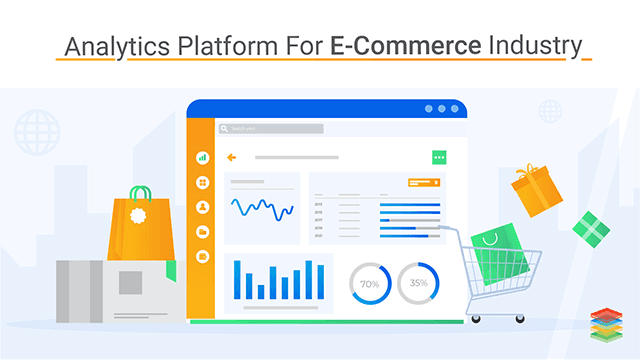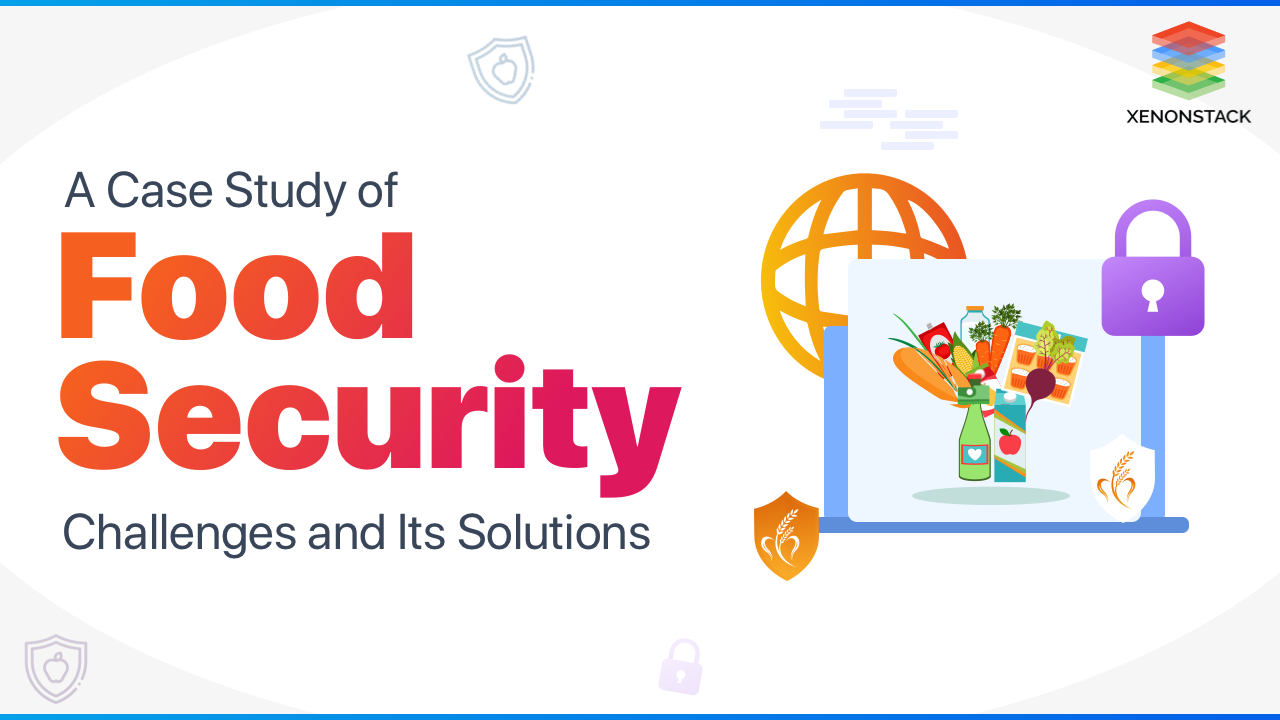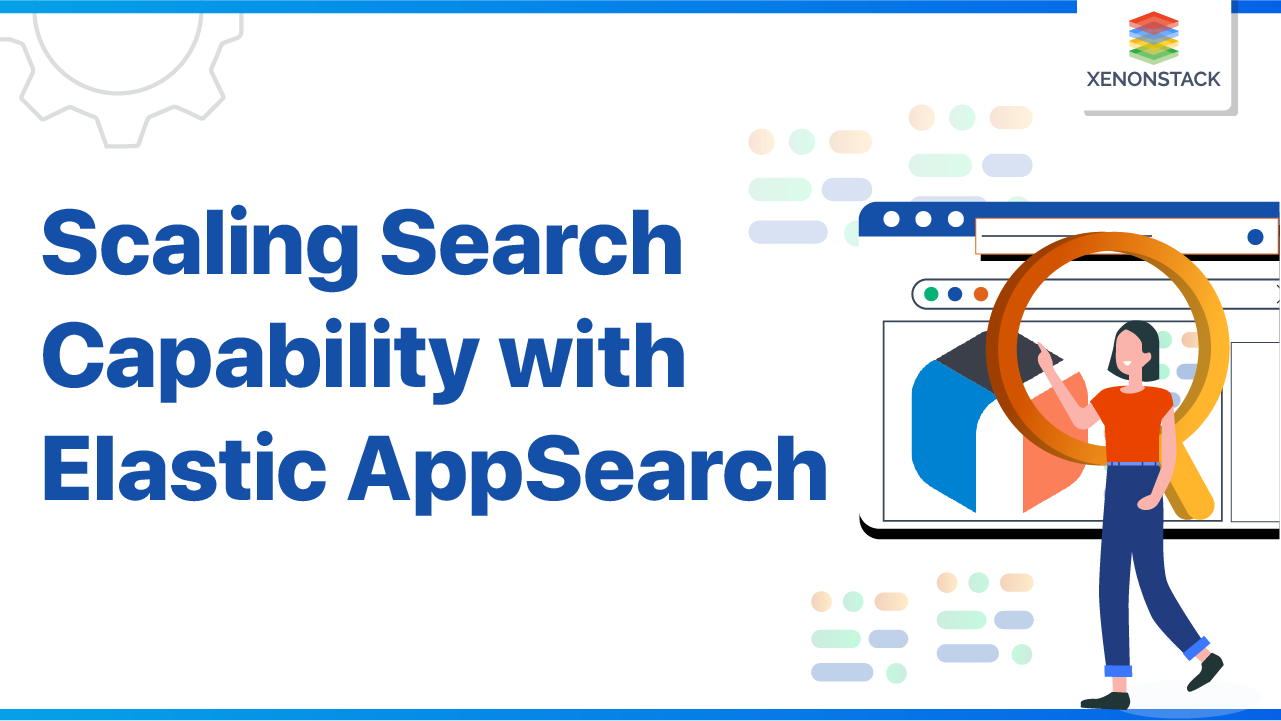
What is Health Care Data?
Health data is any information on a person's or population's health. It is derived from various health information systems (HIS) and other technology instruments used by health care practitioners, insurance companies, and government agencies.
Why do Enterprises Need Big Data Analytics in Healthcare?
By utilizing medical data analytics from various sources, healthcare data analytics can assist in enhancing how medical institutions operate. The Amount of Data in Healthcare is increasing at an astonishing rate. However, in general, the industry has not deployed the level of data management and analysis necessary to make use of that data. As a result, healthcare executives risk being overwhelmed by a flood of unusable data. Consider the many sources of data. Current medical technology makes it possible to scan a single organ in 1 second and complete a full-body scan in roughly 60 seconds. The result is nearly 10 GB of raw image data delivered to a hospital’s Picture Archive and Communications System (PACS).
Clinical areas in their digital infancy, such as pathology, proteomics, and genomics, which are the key to personalised medicine, can generate over 2TB of data per patient. In addition, the research and development of advanced medical compounds and devices generate terabytes over their long development, testing, and approval processes. In this insight, you can also explore more about Enterprise Data Strategy. 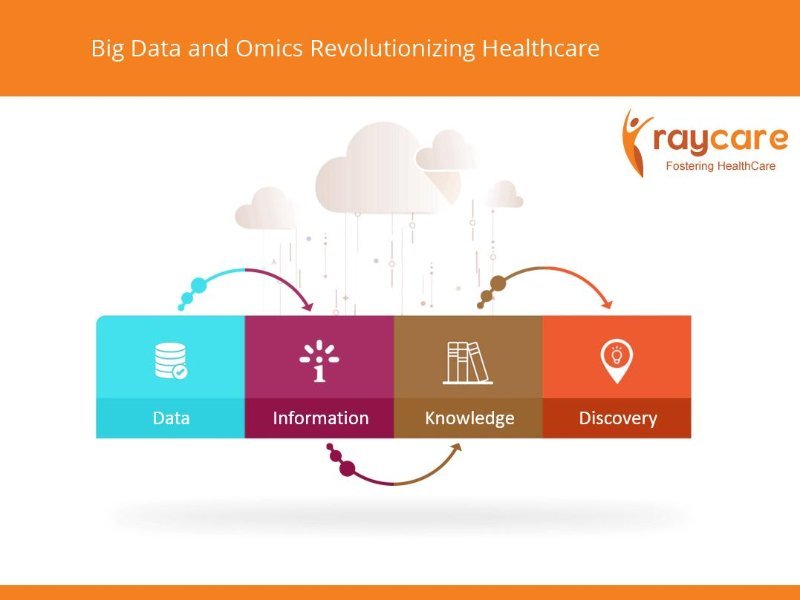
Doctors Are Drowning In Data
Technology isn't enough to improve healthcare. Doctors must be able to distinguish between valuable data and information overload. One of the hopes of Electronic Health Records (EHRS) is that they will revolutionise medicine by collecting information that can be used to improve care.
Getting useful data from EHRs can occur if real data is input. It doesn't always happen. To see patients, document encounters, enter smoking status, create coded problems lists, update medication lists, e-prescribe medications, order tests, find, open, and review multiple prior notes, schedule follow-up appointments, search for SNOWMED codes, search for ICD-9 codes, and find CPT codes to bill encounters(tasks previously delegated to several people) and compassionately interact with patients, providers have to take shortcuts. But we must say, HealthCare Drowning in Data Elements is not yet interoperable onto one Platform.
First, Data Exchange and Interoperability between EMRs, HIEs, Hospitals, Nursing Homes, Homecare, ERs, portals, etc., must be addressed. Industry standards need to emerge on the technology, and the costs need to be defined.
Who is going to pay for what and when?
It seems like the deepest pockets in the industry – pharmaceuticals and insurance – has put a dime into technology solutions or Big Data. They have the most to gain. It is a huge disconnect because physicians and hospitals cannot afford to capitalize on this startup alone. I believe that they will need to be influenced to contribute to this effort, in kind or with cash, for this system to be made whole and meaningful. HIT industry leaders need to sit down with busy clinicians to create a workflow of automated Big Data to provide all the stakeholders with the data to improve all levels of efficiencies and outcomes. 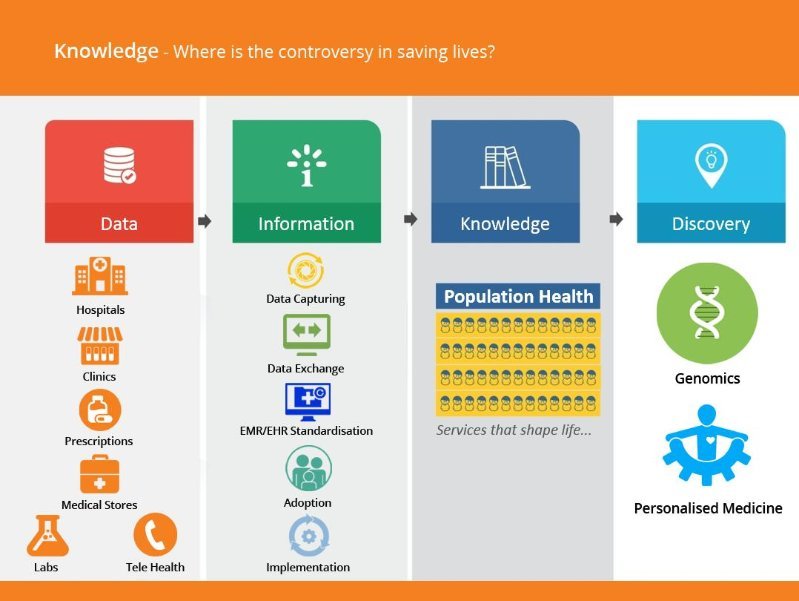 Decisions Through Data: Small data, Predictive modelling expansion, and real-time analytics are three forms of data analytics. Healthcare data will continue accumulating rapidly. If practices, hospitals, and healthcare systems do not actively respond to the flood of unstructured data, they risk forgoing the opportunity to use this data in managing their operations.
Decisions Through Data: Small data, Predictive modelling expansion, and real-time analytics are three forms of data analytics. Healthcare data will continue accumulating rapidly. If practices, hospitals, and healthcare systems do not actively respond to the flood of unstructured data, they risk forgoing the opportunity to use this data in managing their operations.
Small data and Real-Time Analytics are two methods of data analytics that allow practices, hospitals, and healthcare organisations to extract meaningful information. Predictive modelling is best suited for organisations managing large patient populations. With all three methods, the applicable information mined from raw data supports improvements in the quality of care and cost efficiency. Small Data, Real-Time Analytics, and Predictive Modelling will revolutionise healthcare by increasing opportunities beyond reacting to emerging problems.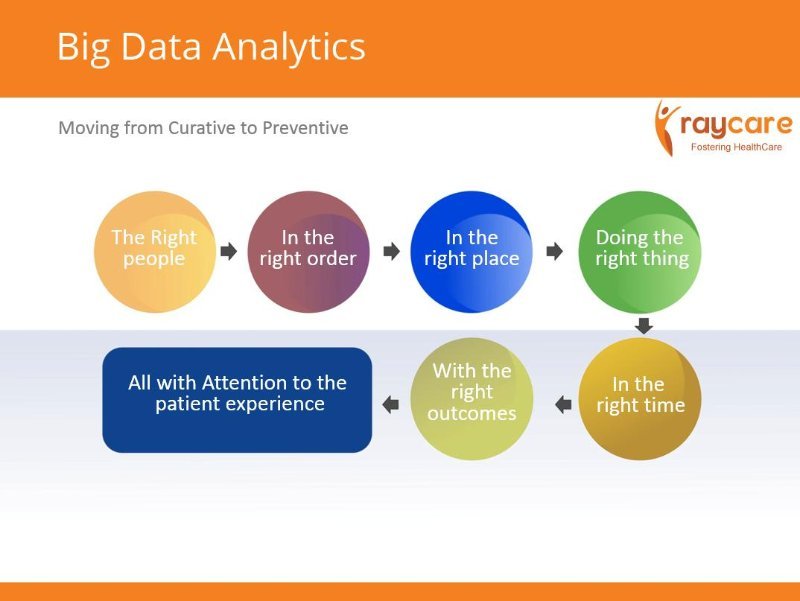
Use of Data Analytics in Healthcare
Data transformation into easily understood insights. Data collection from electronic health records, cost reports, etc. Making recommendations and assisting with decision-making in order to improve facility operations. Data analysis is used to identify trends and patterns. In healthcare, data analytics helps professionals evaluate supply chain performance measures, save resources, and make strategic decisions. Human pharmaceutical prescription, testing, and billing errors can endanger patients' lives and tarnish the hospital's reputation.
How Can XenonStack Help You?
XenonStack has a perfect solution for the healthcare industry: RayCare. RayCare is an Integrated Healthcare Platform That Starts by Connecting Doctors, Labs, Medicine, and Dieticians and providing healthy Life Tips. It then creates Health Profiles, Medical Reports, Daily Health Tracking, Predictive Diagnostic Analytics, and Second-Option Consultation and recommendations.
As discussed above, the healthcare industry is getting benefited from advanced analytics to make better predictive decisions with unbiased data. XenonStack is a leading Company providing Big Data Analytics Solution that helps enterprises Implement analytics solutions for large datasets with Advanced Analytics. To implement a Big Data Analytics Solution Strategy in your organization, you are advised to take below steps:
Next Steps with Data Analytics
Talk to our experts about implementing compound AI system, How Industries and different departments use Agentic Workflows and Decision Intelligence to Become Decision Centric. Utilizes AI to automate and optimize IT support and operations, improving efficiency and responsiveness.
.webp?width=1921&height=622&name=usecase-banner%20(1).webp)

